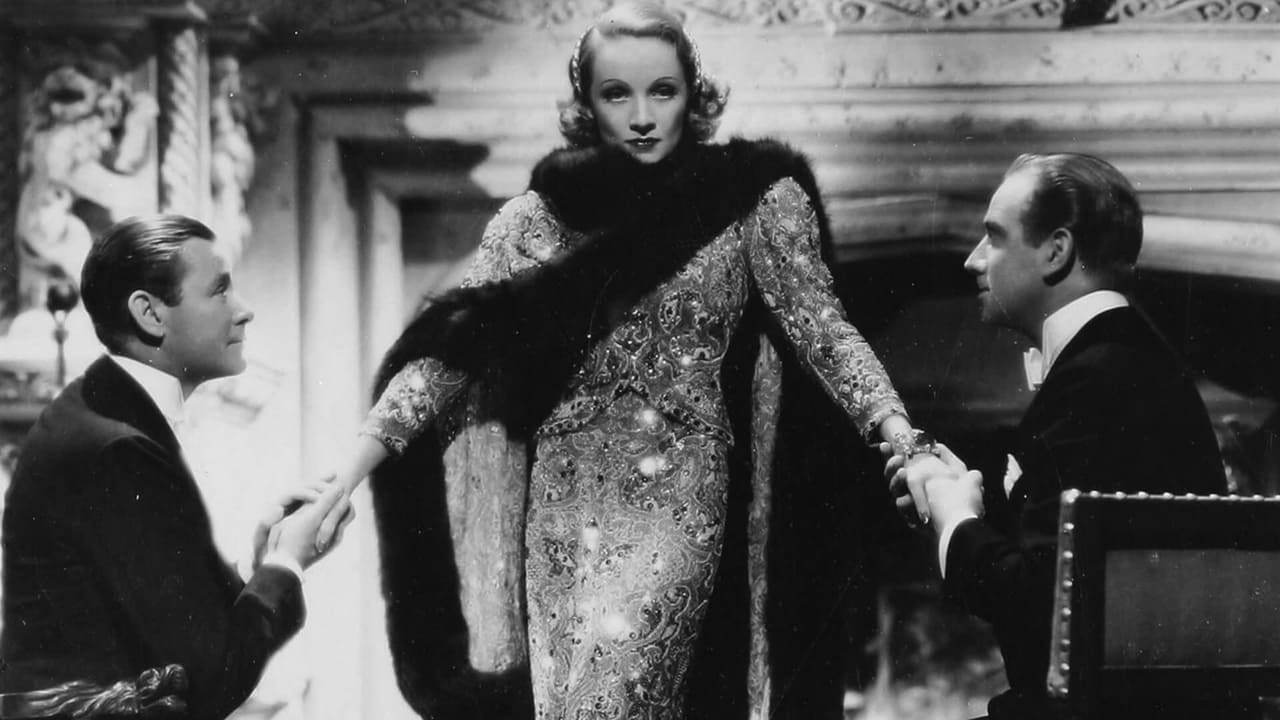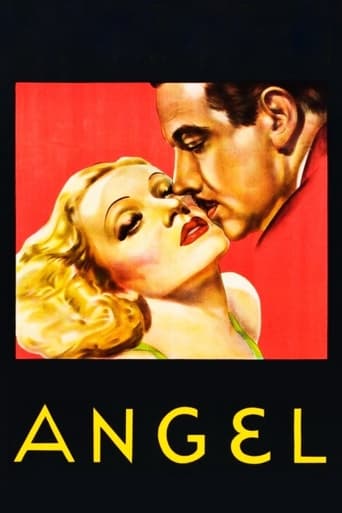

Ernst Lubitsch was an incredibly talented director, who to me rarely made a dud, with his best films even being masterpieces. Even his lesser films are worth a look, even if just once, and better than a lot of directors at their worst.'Angel' is not among his best films, being not in the same league as 'The Merry Widow', 'Ninotchka', Heaven Can Wait', 'The Shop Around the Corner' and especially 'Trouble in Paradise'. It is however, for all its imperfections, one of his more overlooked films. Some may say 'Angel' is a gem, others may say it's a rare dud. To me, it's neither but is much better than its reputation suggests.By all means it could have been better. It does lag in places, not helped by a story being a bit thin for the running time, with some of the romantic melodrama laid on too thickly at times. Herbert Marshall, who is more capable of giving a good performance but has also given some dull ones, is rather somnolent in his role. A few of the secondary roles are underwritten, Edward Everett Horton while still being very funny in particular is under-utilised.With those being said, while just lacking the famous "Lubitsch touch", being on subdued form and lacking the risqué edge, Lubitsch does direct with his customary class and subtlety. He also has some beautiful visual touches, in a lovingly photographed and designed film that clearly loves Marlene Dietrich, judging by now positively luminous she looks.Music is appropriately whimsical in places while also sweeping without being overbearing. The script does have some sparkling humour in the supporting roles and typically sophisticated with a warm charm. The story is less than perfect but has some fun and charming moments.Dietrich is as aforementioned luminous, has a class and elegance and gives her character good comic timing and pathos. In the supporting roles, Horton and Ernest Cossart are particularly entertaining with their back and forth standing out of the comedy.In conclusion, could have been better but overlooked. 7/10 Bethany Cox
... View MoreThis is a Dietrich film, her last starring role at her home studio, Paramount. She is supported by 2 of the top Hollywood leading men - Douglas and Marshall - and dressed sumptuously by Travis Banton. The film should have been a money-maker for its studio, but apparently it was too sophisticated for the small-town public and she became 'Box Office Poison' after its release. Variety, in its disparaging but humorous review, said that you could hang coats from Dietrich's eyelashes. I attentively kept an eye on those eyelashes and have to admit that they ARE long, but not long enough to hang a coat on.I liked this film. I especially liked Dietrich's aristocrat diplomat husband - Marshall - devoted to duty to fend off WW2. And I liked Dietrich. She has servants who attend to all personal and household tasks and therefore she has nothing to do. She is bored. She flies to Paris and has a romantic evening with a stranger - Douglas - a piano playing playboy who is infatuated with her. In the end she chooses the man who is the only one who can give her the happiness she craves. Females can learn a trick or 2 or more re how to attract and keep a man from closely observing Dietrich in this film. In what was once common terminology, she is a "man's woman." How times and the culture have changed.BTW, 'Angel', although it has bits of comedy supplied by the servants, is not a comedy, but is instead a light-hearted, sophisticated marital drama.
... View MoreLubitsch is recognized as one of the great directors of the 30s, and yet this wonderful film is not on any of the usual critical lists of notable films. Perhaps it was too modern for its time. It is perhaps Dietrich's best English performance (though even here she could be a bit more subtle), but the real star is the director, shining in the shots he composes and performances he coaxes from his actors. Lubitsch is a master of subtlety, and when he places important moments off-screen, it is in such a way as to heighten their impact. Since the censorship code is in effect, the sexual elements are cleverly concealed. For example, Halton and Barker discover that in Paris they both visited the same... seamstress. The naive Hays Office must have thought that was the joke, but the real joke is on them for it is clear--at least today--that the two did not visit her to get their sewing done. The sophistication of the film is unusual for its time.Pages could be written about this film. Suffice it to say that if you like 30s film at all, see this. In certain moments, it feels perfect. Probably one of the top 25 of the decade.
... View MoreThe Lubitsch touch is omnipresent in this relatively unknown but extraordinary romantic comedy. The theme of a potential marital infidelity of a disaffected upper class wife (a gleaming Marlene Dietrich) is dealt with unusual sophistication and insight, building up slowly to a brilliant denouement, while the core dilemmas and the predicament of the main character are continuously and subtly underscored. The confrontations between the characters are a delight of restrained pathos, whereas Lubitsch, unsurprisingly, perfectly recreates a confined world of rigid social norms that suppresses any emotional profusion. All the performances are top notch, the secondary characters are equally memorable and the whole film is pervaded by the genius of one of cinemas most charismatic directors, Ernst Lubitsch. One wishes that modern romantic comedies had only maintained even a fraction of the wit and incisiveness that Lubitsch established as a norm in the 30s.
... View More